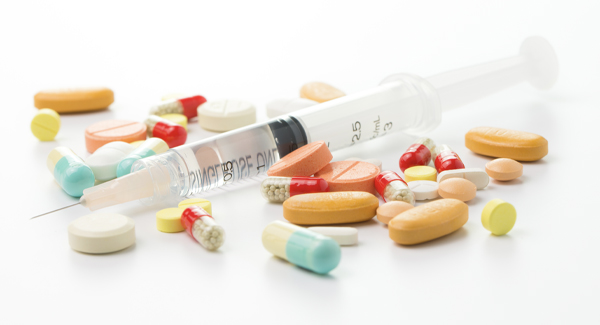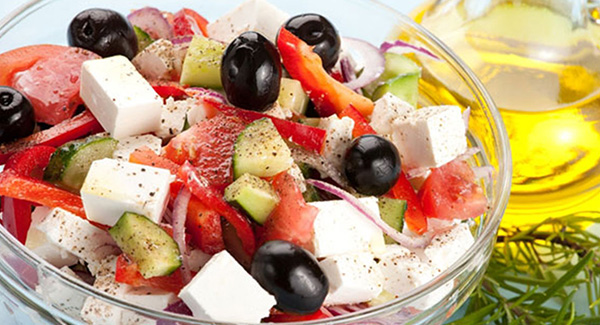Healthy Lifestyle Habits When You Have PsA
Having a healthy lifestyle is key to managing your psoriatic arthritis.
Eating right, exercising and keeping your lifestyle healthy are some of the best ways to manage your psoriatic arthritis and its symptoms. Being overweight or obese is a big contributor to the disease and the pain and skin problems that go with it. Studies show that dieting and exercise together are more effective for weight loss than just dieting. And being active will help relieve your joint pain and stiffness and pay off for your heart, your mental health and plenty more.
“Good nutrition and exercise are important for people with psoriatic arthritis to help them maintain a healthy weight and to preserve muscle mass and physical fitness, especially as they age,” says Ana-Maria Orbai, MD, a rheumatologist at the Johns Hopkins Arthritis Center in Baltimore. “A balanced, healthy diet and exercise program may potentially overcome the unfavorable risk profile of people with psoriatic arthritis for obesity, diabetes and cardiovascular disease.”
Being Active
It’s been said that movement is medicine. Exercise is not only good for your joints, but can help alleviate stress, improve sleep and protect heart health. So find a low-impact routine you enjoy and get moving. Here are some tips to get started.
Start slowly. Before you begin exercising, consult your doctor and bring inflammation under control, says Maura Daly Iversen, professor and chair of the Department of Physical Therapy, Movement & Rehabilitation Sciences at Northeastern University in Boston. “Start slowly and build intensity gradually,” she says. Although some muscle ache is normal, beware of joint pain. “Don’t ever push through [joint] pain, which could be a signal you’re damaging joints,” she adds.
Mix up your routine. Find activities you enjoy so you’ll stick with them, and mix them up to get all the benefits. Aerobic, or cardio, exercise delivers the most direct cardiovascular benefits, and stretching and strengthening activities will give you stronger, more flexible muscles along with better balance. A good weekly routine could include three sessions of moderate aerobic activity plus two classes, such as yoga or Pilates, which combine stretching and strengthening moves. “The key is alternating types to reduce boredom and overuse,” Iversen says.
Keep it low-impact. Whether they’re cardio, stretching or strengthening, pick activities that don’t aggravate joints. “Walking, cycling [or] yoga – and swimming or [water] aerobics done in room temperature or warm, not cold, pool are good choices,” says Iversen. “Think low-impact activities that involve controlled movements.” Elliptical machines, treadmills and other exercise equipment that produce minimal joint impact are also good options, she adds. For the up to 50 percent of people whose psoriatic arthritis affects the spine, keeping exercise low-impact is especially important, says Dr. Orbai. People with PsA generally should skip boot camps, Iversen says. “Such high-intensity, hammering exercises may harm joints.”
Consult a pro. People whose PsA affects the spine are advised to work with a physical therapist (PT) so they exercise safely, Dr. Orbai says. “Consulting a PT or trainer is a good idea for anyone new to exercise or who has had any previous musculoskeletal injury,” she adds. Weight-training can be safe and quickly improves muscular strength, she says. “If you’re new to resistance training, however, work with a trainer knowledgeable about inflammatory arthritis.
Eating Well
You may know the saying, “you are what you eat.” When it comes to the effect of diet on arthritis, what you eat may affect how you feel. No diet can cure psoriatic arthritis (PsA), but the right foods can give your health a big boost. These foods can tamp down inflammation and help deter problems that often tag along with PsA, including obesity and a stepped-up risk for cardiovascular disease (CVD). Here are five foods that belong on your plate.
Fatty fish. The omega-3 fatty acids in salmon, trout, mackerel and sardines are known to soothe inflammation, the villain behind many PsA symptoms. Diets rich in fatty fish have also been shown to
help lower the risk of CVD.
Nuts. Walnuts, pumpkin seeds, flaxseeds and flaxseed oil contain a type of omega-3 called alpha-linolenic acid (ALA) that also helps fight CVD. In studies, nuts have been shown to lower cholesterol and reduce inflammation. One study shows that snacking on nuts even appears to help people reduce the risk of weight gain – but that doesn’t mean they’ll help you lose weight; they’re high in fat.
Olive oil. In a Spanish study, a group of people who followed a Mediterranean diet supplemented with either extra-virgin olive oil or nuts had 30 percent fewer heart attacks and strokes than people who followed a low-fat diet. Olive oil contains phenolic compounds, including oleocanthal, which battle inflammation. Just don’t go overboard; it contains about 120 calories per tablespoon.
Lean protein. Skinless chicken and pork are both rich in protein and low in fat. “The problems that we see with body composition in our patients with inflammatory arthritis are loss of muscle and gaining of fat,” says Rebecca Manno, MD, assistant professor of medicine in the division of rheumatology at Johns Hopkins University School of Medicine. “Protein has to be an important part of rebuilding muscle, and most people do not have a sufficient intake.” Not a meat eater? Add whey protein to your oatmeal or use it in a protein shake, she says.
Colorful vegetables. Veggie-rich diets are famously heart-healthy, and in a recent study, women who ate more cruciferous veggies – think broccoli, Brussels sprouts, kale and cauliflower – had lower levels of inflammation than those who ate fewer of the vegetables. Dr. Manno recommends eating colorful veggies in place of starchy carbs. And keep in mind that what you eat might not be as important as how much you eat, especially if you’re overweight.
Excess body fat produces inflammation. “I think the most important dietary aspect of managing arthritis is portion control, as obesity is a major contributor to most forms of inflammatory arthritis,” says Eric
Matteson, MD, professor of medicine and a rheumatologist at Mayo Clinic.

Stay in the Know. Live in the Yes.
Get involved with the arthritis community. Tell us a little about yourself and, based on your interests, you’ll receive emails packed with the latest information and resources to live your best life and connect with others.



